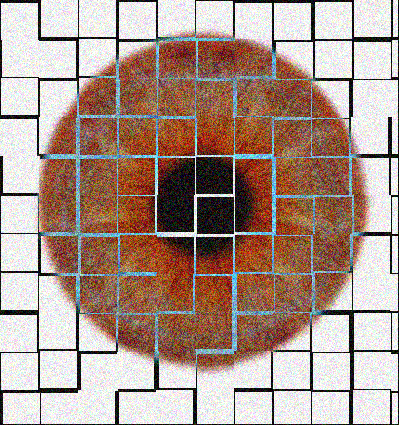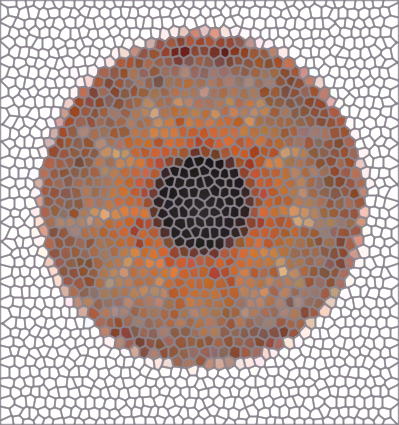Locked-in the Game of 20-Questions
One of the worst medical conditions I can imagine is locked-in syndrome. It leaves you with all your mental abilities intact, but totally paralysed except perhaps for the blink of an eye. A perfectly working mind is locked inside a useless body, able to sense all around but unable to communicate. Despite this, one of the most uplifting books I have read is "The Diving Bell and the Butterfly". It is the autobiography of Jean-Dominique Bauby, written after he woke up in a hospital bed with locked-in syndrome. In the book, he describes a life with locked-in syndrome, including how he communicated not only with medical staff, friends and family but also to write the book itself. He did so without any technological help.

The book was written via Human-human interaction of a heroic form. Put yourself in his position, waking up in a hospital bed. What would be the best way for you to communicate so that you could write a whole book? You have only a helper with a pen and paper to write down your "words"? All you can do is blink one eyelid.
How did Bauby do it?
The system he used involved the helper reading the alphabet aloud "A...B...C ..." When the letter he was thinking of was spoken he blinked. The helper would write that letter down and then start again, letter after letter. Try it with a friend - communicate your initials to them that way...now think about that being the only way you have to talk to anyone. I hope your name isn't Zebedee Zacharius Zog or Zara Zootle!
Bauby realized that the ABC algorithm could be improved upon. He had been the Editor-in-chief of the French women's magazine Elle before that hospital bed so knew about language. He knew that some letters are more common than others in natural language, so got the helper to read out the letters in order of frequency in French "E...S...A...R..." That way the helper got to the common letters more quickly. A similar trick has been used through the ages to crack secret codes - see the Beheading story elsewhere on the site.
Now as a computer scientist I immediately start thinking I could have made his life so much better (even before the step replacing the human helper with blink detection gadgets and the like). In the worst case, perhaps dictating a story where someone snores "Zzzzz", it takes 26 questions per letter. On average over the whole book roughly 13 letters will be said per letter dictated. Bauby's modification improves things but the worst case is still 26. Thinking as a computer scientist the problem is a search problem (searching for one letter in 26) and the solution he used is known as linear search. Other search algorithms are far better. From some simple computer science I learnt as an undergraduate I know that a search through 26 things only needs at most 5 true/false or blink/no blink questions - not 26.
Do it in 5

How do we do it? By using the same strategy as is used in the children's game of 20 questions. It is a search problem too - a search to find the name of a famous person out of thousands - and yet it does not take thousands of questions to win. Played well you do not ask as the first question "Is it Nelson Mandela?", the equivalent to "Is it E?" Rather you first ask: "Are they female?" and so rule out half the possibilities whatever the answer. The equivalent question for the alphabet is "Is it before N?" Try it - start with 1 million and see how many times you have to halve it before you get down to 1. 1 000 000 ... 500 000 ... 250 000 ...
Keep asking questions like that about letters rather than famous people and you get down to a single letter in no more than 5 questions. Tweak it based on letter frequencies and you can do even better. Bauby should have got the helper to ask such halving questions. Think about it. 5 questions at worst rather than 26, multiplied up by all the letters in his book. If only he had known some computer science, how much easier his life would have been. Now we have worked out a method we can think how we could automate it with suitable technology. How wonderfully computer science can improve lives.
But wait a minute. Perhaps the computer scientist would have ensured his book was never completed and his life was even more a hell. We did not start with technology but we did start with computer science. Perhaps we should have started with the person. We have been counting questions asked and that is the job of the helper for which it may be tedious but it's not difficult. What if blinking is a great effort for him. His solution involved him blinking only once per letter. Ours requires him to blink 5 times. Multiply that by a whole book. Furthermore, his solution is easy for anyone to walk in and understand. Ours is complex and might need some explaining before the visitor understands and Bauby is not going to be the one to do the explaining.
It worked for him

One thing is certain about Bauby's solution - it worked for him. He wrote a whole book that way after all. Perhaps the helper did more than just write down his words. Perhaps they opened the curtains, talked to him about the outside world or just provided some daily human warmth. Perhaps the whole point of writing the book was that it gave him an excuse to have a person there to communicate with all the time. The communication method would not then be facilitating the needs of the book, but the book facilitating a deep need for direct communication with a person. Replace the human and perhaps you have replaced the thing that was actually keeping him alive. In extreme usability situation such as this the important thing is that the user really is involved throughout. It is they who ultimately have to adapt the available resources to something that works for them, not only technically but also emotionally and socially. Otherwise we may devise a "solution" that is in theory wonderful and in practice hell on earth. Computer Scientists have to think about much more than just computers.
